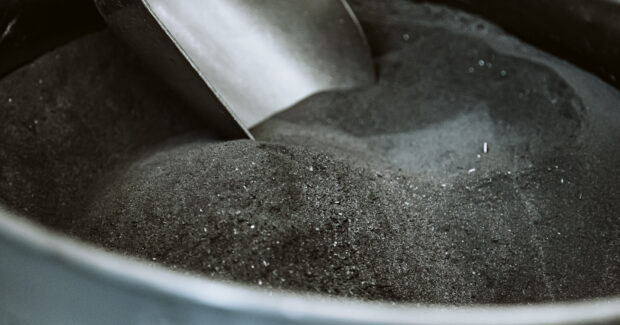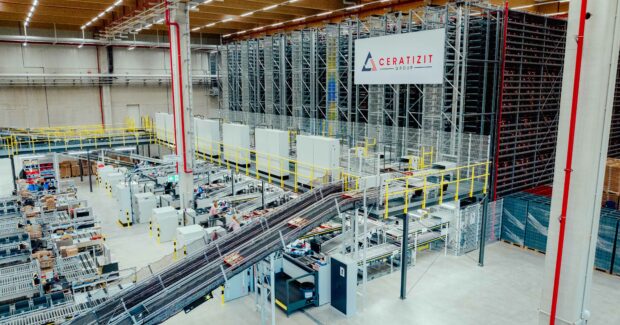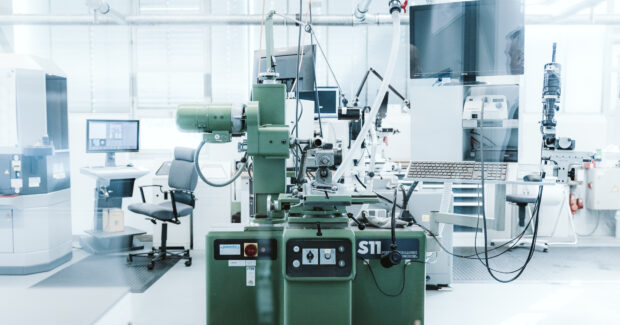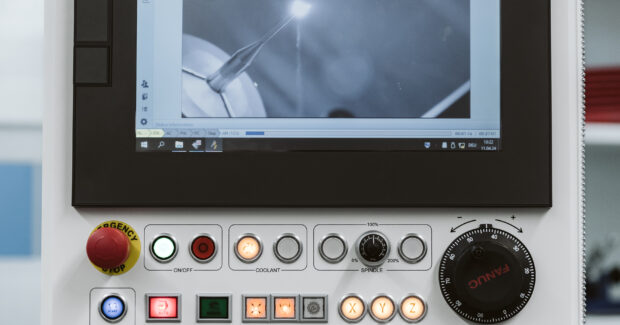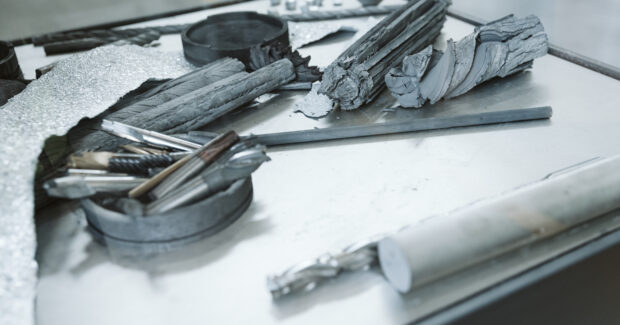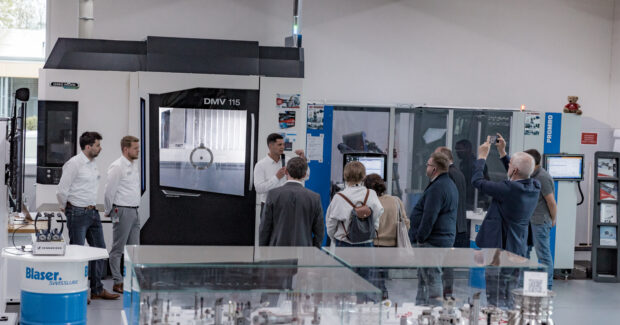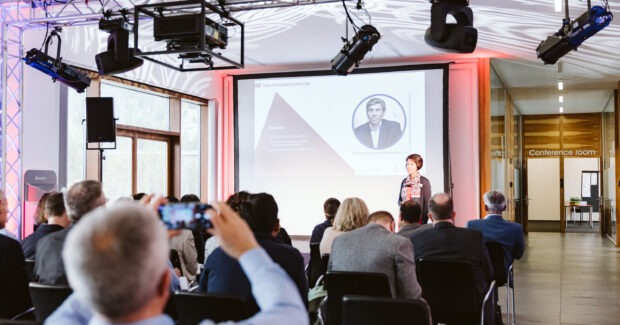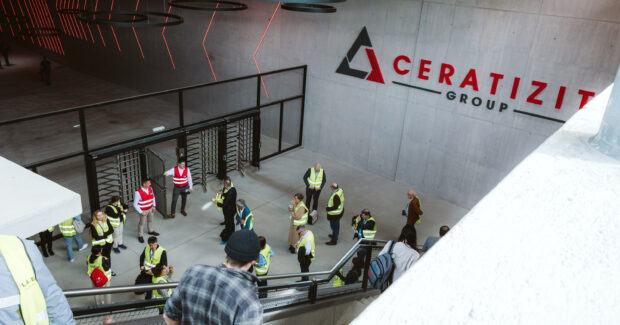CERATIZIT’s Sustainability Mission Results in Maximum Productivity
CERATIZIT hosted Open Days 2024 in April where it showcased its sustainability initiatives and various new production facilities, sales and technical centers and much more.
Posted: June 11, 2024
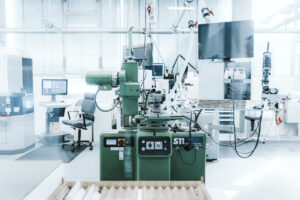
For CERATIZIT, sustainable manufacturing is not just a goal — it is truly a mission. CERATIZIT designs and manufactures high quality standard and custom tooling for the metalworking industry, as well as provides innovative machining strategies to its customers. CERATIZIT is a pioneer and innovation leader in carbide research, and in the production and application of cemented carbide parts.
CERATIZIT emphasized its commitment to sustainability at its Open Days event, held April 9-11, 2024, in Austria and Germany, demonstrating it is clearly on the way to becoming the tooling industry’s leader in achieving sustainability initiatives. At the event, visitors learned first-hand about the company-wide initiatives underway to achieve sustainability targets throughout its operations, which includes the development of recycled carbide grades called upGRADE.
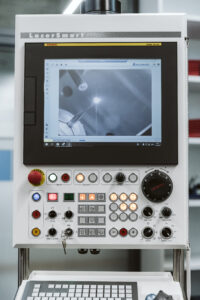
CERATIZIT also highlighted its energy efficient and environmentally compatible new and updated facilities, which are the result of millions of dollars in investments in sites throughout its European operations. New production facilities have been added in Austria at Kreckelmoos, and in Bulgaria and Poland.
CERATIZIT’s location in Reutte, Austria, which is located in the Außerfern valley in the state of Tyrol, is surrounded by the breathtaking Allgäu Alps, and along the Plansee lake, all of which provide inspiration on the road to realizing sustainable manufacturing.
The CERATIZIT GROUP, which is part of The Plansee Group, also includes CERATIZIT USA, located in Schaumburg, Ill. (Dan Cope was appointed as the new president of the Americas, effective May 1.)
Plansee, headquartered in Reutte, specializes in the processing of molybdenum and tungsten into semifinished products and components. CERATIZIT processes tungsten carbide into cutting tools.
CERATIZIT GROUP, headquartered in Mamer, Luxembourg, has 33 production locations, more than 50 sales offices and more than 9,000 employees — 200 work in R&D. The company provides more than 100,000 different products and holds more than 1,000 patents and utility models. The company’s wear parts and cutting tools are used in sectors such as mechanical engineering and toolmaking, the automotive and aerospace industries, medical industries, and oil and gas industries.
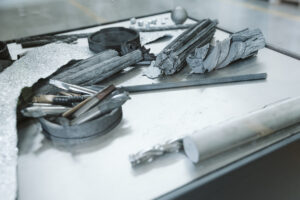
At Open Days, CERATIZIT showcased its production operations (inserts and rods) and its closed loop system to develop recycled carbide grades in Reutte, as well as the new Kreckelmoos site (opened in January 2024), where CERATIZIT produces carbide tools. The Breitenwang neighborhood of Kreckelmoos is one kilometer from the site in Reutte. Energy efficiency and environmental compatibility were the focus of planning for that new production facility.
CERATIZIT also highlighted its 17,000-square-meter business services/logistics center, and the brand-new sales and technical center (which opened in April 2024) both located in Kempten, Germany.
CERATIZIT’s ultra-modern logistics and supply chain systems mean that the tools are delivered to customers in next to no time. In fact, all orders placed before 7 p.m. will be shipped on the same day.
During Open Days, visitors to the new sales and technical center experienced a live machine tool demonstration area where customers can view CERATIZIT’s latest tooling advances at work with state-of-the-art machine tools.
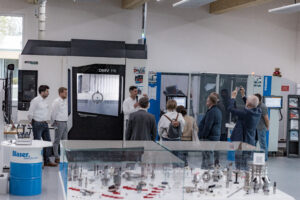
Visitors to Open Days also toured the company’s round tool production operations, which includes a competence center in aerospace and energy, among other operations, in Balzheim, Germany. An innovation at the Balzheim facility finds CERATIZIT creating drilling and milling tools with Rollomatic software and a system from FANUC, which supports laser cutting. Smaller tool development works well with the laser and CERATIZIT is testing how small they can get regarding product development. The laser process is flexible and allows the company to think of things that have never been done before regarding round tool production.
Tooling a Sustainable Future
While there were many highlights during Open Days, at the Reutte facilities, which included an inside look at the production facilities for inserts and rods, a series of interactive marketplaces enabled visitors to meet directly with company specialists about topics such as additive manufacturing (see sidebar), tooling innovations (see sidebar), and an in-depth look at the sustainability efforts of CERATIZIT.
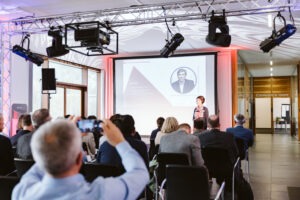
The company has carefully developed its Product Carbon Footprint (PCF) classification, which measures the specific carbon footprint of the carbide products in kg CO2e/kg product. The PCF is the industry’s first for calculating and classifying the carbon footprint of carbide products. It follows the cradle-to-gate approach and excludes downstream emissions. With the PCF classification systems, customers can easily assess the environmental impact of their purchases, joining CERATIZIT in building a more sustainable future because the company has conducted the “green” groundwork during product development. Customers can manufacture more sustainably using CERATIZIT’s products and services.
CERATIZIT also has a regrinding or reprofiling program, where customers can send used tools back to be reground, achieving nearly 100% of the original tool life and performance of a new tool, benefitting the environment and the bottom line.
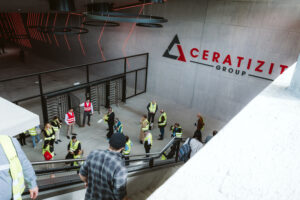
The company aims to be carbon neutral by 2025 and is committed to reducing the use of virgin raw materials in its production processes. To that end, the company has undertaken an innovative process to recycle carbide grades, which has resulted in its upGRADE products being used in the manufacturing of rods, as well as finished cutting tools. The CT-GS20Y is the first recycled carbide grade from CERATIZIT.
The Pro-ACT Mill UNI line is comprised of solid carbide milling cutters made from the upGRADE carbide substrate. The product was part of an Open Days live demonstration on the DMC 90 U from DMG MORI at the company’s new Kempten sales and technical center. The Pro-ACT Mill UNI product, consisting of at least 99% recycled carbide, is in testing and will be rolled out soon.
Another live demonstration conducted in Kempten was on DMG MORI’s DMV 115 vertical machining center, which featured the CERATIZIT ProMRO R-C2. The R-C2 automated robot cell changes workpieces between the pallet magazine and the machine table, which enables increased flexibility, requires less set up time, and supports unmanned production shifts.
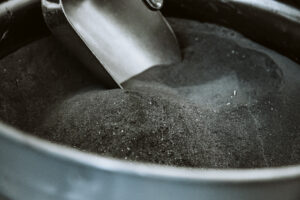
CERATIZIT also demonstrated cutting tools ideal for aerospace and automotive applications on a Mazak MTV 815/80. The demonstration featured profile milling with the MaxiMill extended flute cutter; slot milling & shoulder milling with the MaxiMill 211-15 shell mill; and helical milling and inner contour milling with the MaxiMill 211-11KN shell end mill shank.
At the Open Days event, CERATIZIT distinctly demonstrated that its history as a pioneer and innovation leader in the production and application of cemented carbide parts supports its vast and far-ranging sustainable manufacturing mission. CERATIZIT’s sustainability mission encompasses its entire supply chain, and by collaborating with partners to address climate issues, the company provides customers with products that ensure a competitive advantage.
AM with Cemented Carbide: Turn the Impossible into Reality
The very nature of additive or 3D printed manufacturing, building successive layers of material to create a form as opposed to subtractive process where material is removed to create a form, lends itself to thinking in new forms and shapes. Metal tooling and workholding is an area where manufacturers can benefit from the untold advantages of additive manufacturing.
For CERATIZIT’s team, when working with customers, the impossible is possible — “if you can image it, we can make it.” CERATIZIT’s team leaders spoke about the benefits of additive manufacturing of cemented carbides at the Open Days event held in April in Reutte, Austria. Peter Lechleitner and Dr. Manuel Walch noted the printing technologies, powder-based and binder based, allow customers to adapt their processes to demand, and implement the best material and technology for each task.
They also spoke about the freeform (geometrical freedom) nature of the design process, which supports scalability. Near net shape fabrication means less raw material, post processing and sintered scrap. A major benefit, which also lends itself to sustainable initiatives, is that hollow bodies, internal structures and hidden features in a product such as a pressure droplet valve, maximize properties through material and weight saving, stiffness, dampening effects and cooling channels.
Lechleitner and Walch noted the company is using its recycled carbide grade, CT-GS20Y, in the additive manufacturing process. The material allows for the use of a range of coarse to ultrafine grades, a variety of binder types, and high and low binder content, among other benefits.
Another advantage of the additive manufacturing process centers on the prototyping process and the testing of designs. Time-consuming steps such as CNC machining are eliminated. What’s more, complex shapes and properties can easily be redesigned.
Just Our Thing: CERATIZIT Materializes Solutions with Customers
CERATIZIT offers an extensive cutting tool portfolio and cutting-edge application and engineering support. Collaborating with customers to understand their machine challenges and pain points has resulted in solutions that increase performance and reduce costs. Among product advances is the MultiLock exchangeable head system, a suitable head for every application, whether for high-feed milling cutters, torus cutters, radius cutters or deburring milling cutters. With the patented “Captive Pocket” sintered interface, the MultiLock reaches a new level of stability that almost measures up to that of a solid carbide tool.
Another product line, the MaxiMill Series includes the newly available MaxiMill-211 DC (DirectCooling) indexable insert milling system, which is additively manufactured in-house at CERATIZIT. The additively manufactured milling cutter body of the MaxiMill-211 DC provides the potential to design the required complexity of the flank cooling, which provides a combination of geometric and functional properties. An ideal nozzle position, complemented by an insert geometry that is matched to the cooling system, guarantees continuous coolant wetting of the insert cutting surface.
The DC system is also available for use with turning tool holders. In January 2022, the release of the MaxiLock-S DC turning tool holders supplemented the DC system, where two nozzles apply coolant directly to the cutting edge. The DC system more than doubles the life of the tool that would be achieved with uncontrolled cooling — depending on the respective material and machining application. An updated insert seat makes it possible to clamp the turning indexable insert with even more stability.
In February 2023, CERATIZIT completed the DC range with the MaxiLock N-DC turning tool holders.
Another featured innovation regarding turning is the FreeTurn tool, which is one indexable insert for multiple turning operations; inserts of up to three ISO geometries can be used on one holder. A multiple cutting edge insert can consist of different cutting angles, corner radiuses, chip breaker steps, coatings and cutting materials.

